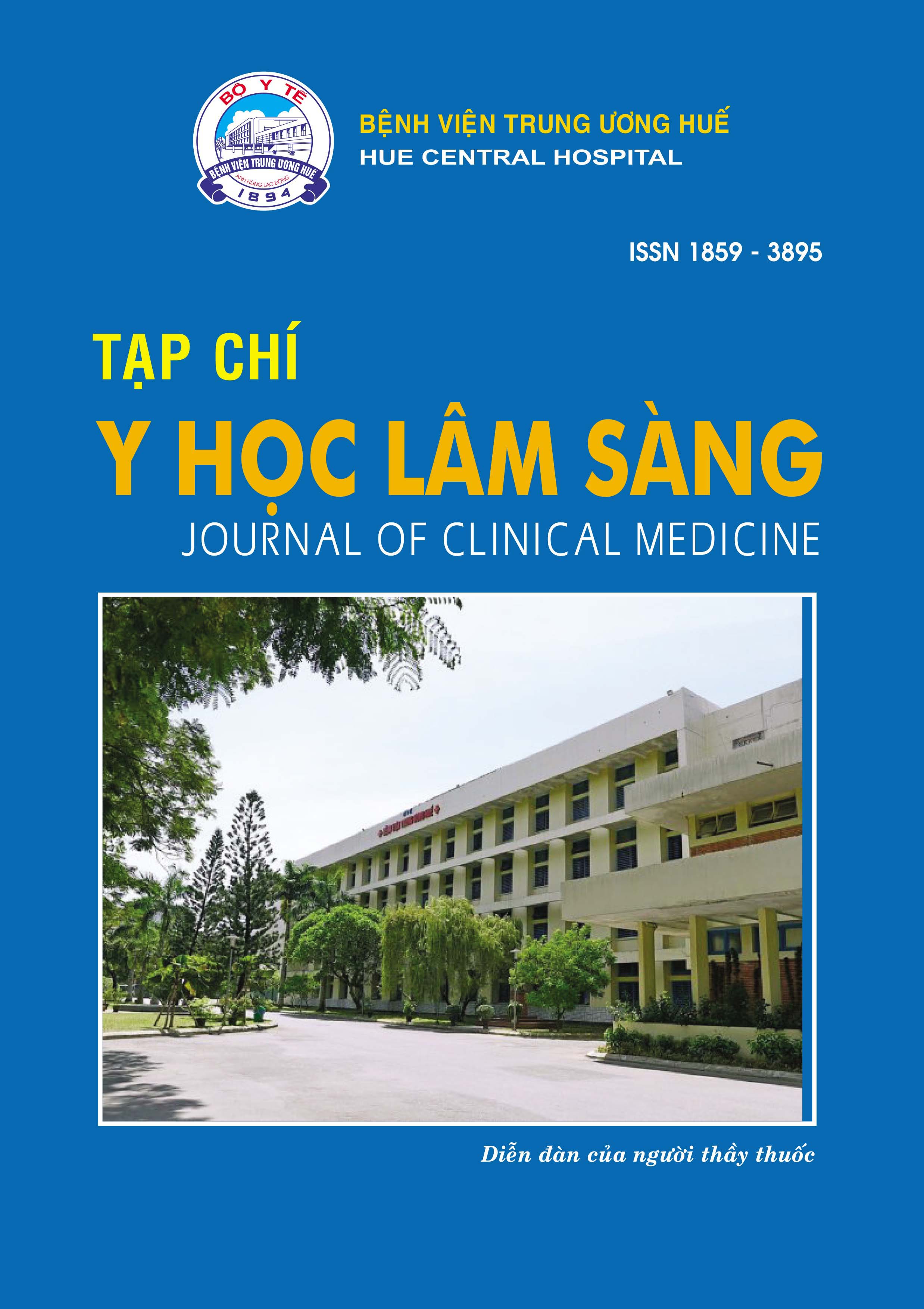Abstract
Objective: Evaluating the result of high-dose imatinib for metastatic gastrointestinal stromal tumours after failure standard-dose first line.
Patients and method: Restrospective analysis of 46 patients with metastatic gastrointestinal stromal tumours after failure standard-dose imatinib treated with high-dose imatinib at K hospital from 1/2015 đến 10/2019.
Results: Median age was 54.6±9.5, male was 58.7%. The common primary tumor was gastric tumor. The mean time to failure of imatinib standard-dose 400mg/day was 38.2±5.3 months. Liver lesions were the most common lesions progressed after imatinib standard-dose failure (71.7%), primary tumor progressed was 39.1%. There was no patient who had complete response with treatment, the proportion of partial response accounted for 21.7% and stable disease was 45.7%. The clinical benefit rate was 67.4%. The sex-female, primary gastric tumor, good ECOG performance status, neutrophils, hemoglobine and albumin before treatment were the significant prognostic factors affecting the treatment response, p <0.05. The mean time to failure was 22.5 ± 3.4 (months), (min: 2.0; max: 58.0), median was 11.0 months.
Conclusion: Treatment of high-dose imatinib after failure standard-dose 400mg/day showed the efficacy and good tolerance in metastatic GISTs.
References
Kindblom L. G., Remotti H. E., Aldenborg F. et al (1998), Gastrointestinal pacemaker cell tumor (GIPACT): gastrointestinal stromal tumors show phenotypic characteristics of the interstitial cells of Cajal, Am J Pathol. 152(5), 1259-69.
Goettsch W. G., Bos S. D., Breekveldt-Postma N. et al (2005), Incidence of gastrointestinal stromal tumours is underestimated: results of a nation-wide study, Eur J Cancer. 41(18), 2868-72.
Miettinen M., Sobin L. H. andLasota J. (2005), Gastrointestinal stromal tumors of the stomach: a clinicopathologic, immunohistochemical, and molecular genetic study of 1765 cases with long- term follow-up, Am J Surg Pathol. 29(1), 52-68.
Blanke C. D., Demetri G. D., von Mehren M. et al (2008), Long-term results from a randomized phase II trial of standard- versus higher-dose imatinib mesylate for patients with unresectable or metastatic gastrointestinal stromal tumors expressing KIT, J Clin Oncol. 26(4), 620-5.
Demetri G. D., van Oosterom A. T., Garrett C. R. et al (2006), Efficacy and safety of sunitinib in patients with advanced gastrointestinal stromal tumour after failure of imatinib: a randomised controlled trial, Lancet. 368(9544), 1329-38.
Demetri G. D., von Mehren M., Antonescu C. R. et al (2010), NCCN Task Force report: update on the management of patients with gastrointestinal stromal tumors, J Natl Compr Canc Netw. 8 Suppl 2, S1-41; quiz S42-4.
Demetri G. D., Reichardt P., Kang Y. K. et al (2013), Efficacy and safety of regorafenib for advanced gastrointestinal stromal tumours after failure of imatinib and sunitinib (GRID): an international, multicentre, randomised, placebo- controlled, phase 3 trial, Lancet. 381(9863), 295-302.
| Published | 21-12-2020 | |
| Fulltext |
|
|
| Language |
|
|
| Issue | No. 66 (2020) | |
| Section | Original article | |
| DOI | 10.38103/jcmhch.2020.66.6 | |
| Keywords | U mô đệm đường tiêu hoá, Imatinib tăng liều Metastatic gastrointestinal stromal tumor (GIST), high-dose imatinib |

This work is licensed under a Creative Commons Attribution-NonCommercial-NoDerivatives 4.0 International License.
Copyright (c) 2025 Journal of Clinical Medicine Hue Central Hospital

